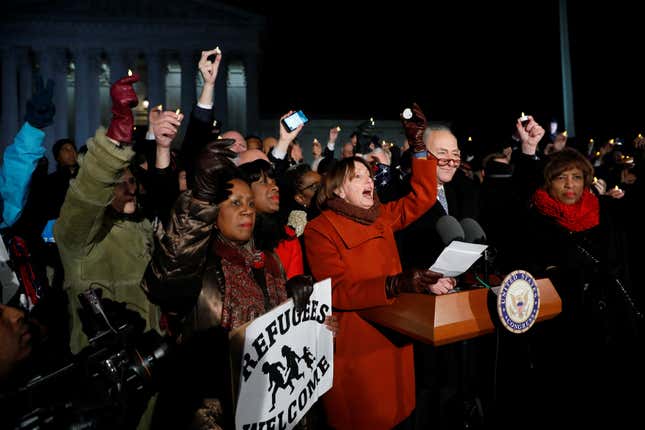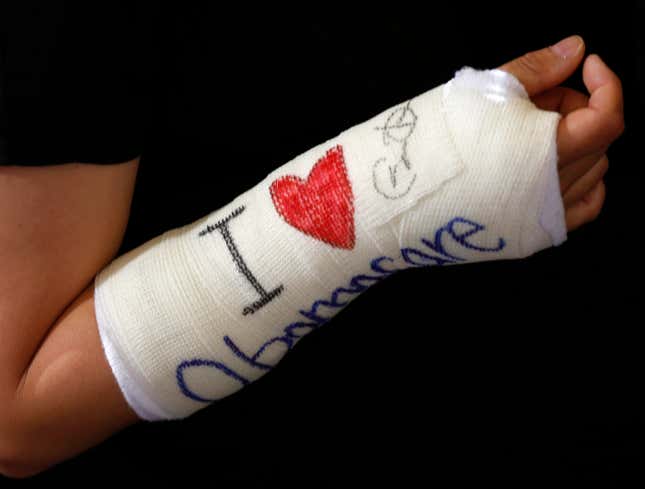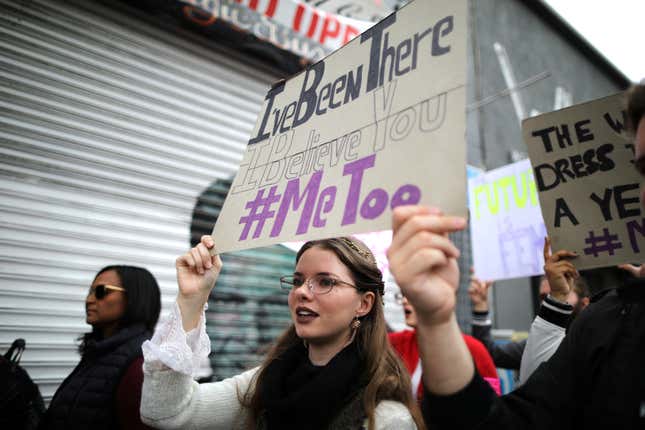After Donald Trump’s surprise victory in last year’s US presidential election, American progressives were in a dark place. Trump had won 306 electoral votes, including a swing state sweep with wins in Pennsylvania, Ohio, Florida, North Carolina, Wisconsin, and Michigan. Republicans controlled both houses of Congress, and the White House for the first time since 2007. The “highest and hardest glass ceiling” remained intact.
A certain malaise has prevailed among US liberals in the days since, as a widening investigation into Russian interference in the 2016 campaign drags on, Obama’s legacy is dismantled with each new executive order, and the president himself remains apparently the only high-powered man accused of serial sexual assault and harassment to not face any serious consequences.
But for Americans who identify with the progressive left, there is still plenty to be thankful for this holiday season.

A wave of liberal candidates are taking office
The 2017 midterm elections in the US might was an unofficial rebuke to Trump’s first year months in office. On Nov. 7, voters gave Democrats seats in local elections across several states. The winners included a diverse array of candidates, including people of color, immigrants, former refugees, and transgender women.
As my colleague Heather Timmons wrote for Quartz:
In many cases, those candidates won against personal attacks and rival Republican campaigns based on racism, homophobia, and anti-immigrant messages. The Democratic National Party chair Tom Perez called the party’s victory in the ugly Virginia governor’s race a “blueprint” for the party going forward, and other party members are saying the same about smaller local races.
In Virginia, 33-year-old Danica Roem was elected to the state legislature, making her one of the first transgender women to hold state office in the US. Her challenger, 73-year-old Robert Marshall, had previously won 13 terms in the state and referred to himself as the state’s “chief homophobe.”
Roem’s election was propelled in part by the excitement of young voters, who came out in high numbers to support a more inclusive candidate. In 2009, 17% of young people (18 to 29-year-olds) voted in the Virginia midterm elections. In 2017, that number jumped to 34%, according to the Center for Information & Research on Civic Learning and Engagement.
Following Roem’s historic win, the GOP leader of Virginia’s House of Delegates M. Kirkland Cox said lawmakers should cease the tradition of calling legislatures either “gentleman” or “gentlewoman,” but rather the gender-neutral term “delegate.”
Read more: The progressive backlash to Trump’s election has officially begun

Court rulings have blocked many of Trump’s least popular initiatives
Americans who believe in firm regulation might be alarmed by some of the changes coming from this White House. The Trump administration has been systematically dismantling rules and laws that protect millions of Americans, including ending a rule that blocks gun sales to people too mentally ill to manage their own financial affairs. The White House also froze a rule in August that required large businesses to report pay data by gender and race, potentially enabling companies to pay women and minorities less without being noticed. Oh, and financial advisers will not have to follow a relatively new rule that requires them to work in their clients’ “best interest.”
But as regulations have been delayed, frozen, or reversed all together, the US court system has also provided a much-needed check, striking down some of Trump’s signature orders in a way:
On Jan. 28, a federal judge in New York blocked the White House’s travel ban. The administration put forward a revised travel ban in March, which was also blocked by judges in Maryland and Hawaii. In rulings staying both proposed bans, judges cited the president’s tweets as influencing their decision.
On Oct. 30, a US federal judge blocked the Trump administration’s proposed ban on transgender troops in the military, ruling the policy was inherently discriminatory, based on “disapproval of transgender people generally.”
Read more: Donald Trump’s big mouth keeps killing his own directives

Obamacare remains the law of the land
During the 2016 campaign, Trump repeatedly promised the electorate that on “day one” he would ask Congress to deliver a full repeal of Obamacare, the signature health care legislation of Obama’s presidency. Speaking last October in Florida, Trump said: “It’s a set of promises for what I’ll do in my first 100 days. It includes getting rid of immediately Obamacare, which is a disaster.”
On March 24, House speaker Paul Ryan was forced to admit defeat after a GOP effort to repeal Obamacare stalled once again. “I don’t know what else to say other than Obamacare is the law of the land,” he said.

#MeToo, or the power of women speaking together
On Oct. 15, a tweet by actress Alyssa Milano calling on women to share their experiences with sexual assault or harassment went viral, reinvigorating a phrase first coined by a black activist Tarana Burke in 2007 as a grassroots movement to promote “empowerment through empathy.”
Since the social media campaign began, thousands of women have shared their stories online, prompting fall-out for some of the most powerful men in America. In turn, the Western world’s once-skeptical approach to women’s stories is changing—and so are the consequences for men who are accused. And that’s definitely something to be thankful for.

Read more: 17 women have accused Donald Trump of sexual misconduct. It’s time to revisit those stories
